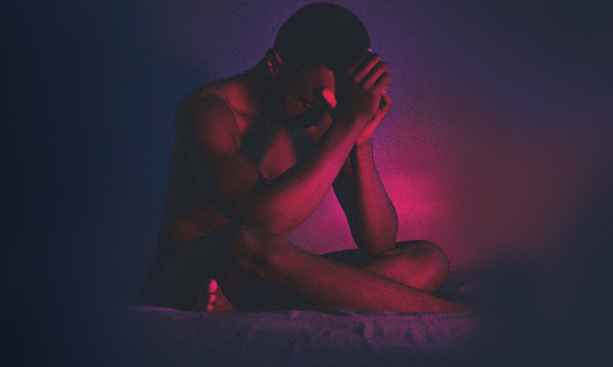There is no denying that the past few months have been increasingly uncomfortable and worrying. Since the initial outbreak in China’s Wuhan province, the coronavirus, also known as COVID-19, has infected over millions worldwide and has dominated the news and social media almost every single day. For many of us, our homes are a welcomed sanctuary during these defeating times. A safe haven where apart from social distancing to stay healthy, our biggest concern is the daily boredom and what Netflix show to binge on next. However, for many young LGBTQI+ people, lockdown becomes especially difficult when your identity isn’t respected, understood or accepted by those you’re in lockdown with.
Being confined to the indoors can be bad for anyone’s mental health, but young LGBTQI+ people, especially those with precarious home situations, are struggling even more in the midst of our current pandemic. A sad reality is that some people have had to leave their safe spaces and friendship circles to live in stealth at home again. A huge, almost grief-like, process which can lead to increased self-harm, depression and other behaviours detrimental to one’s overall health. Queer people’s mental health issues may be worsened during this time by the obvious case of having their normal routines disrupted and the lack of access to face-to-face support.
Obviously, no one enjoys social distancing weeks on end, but the effect is rather different when you have had to step away from your accepting community to instead isolate yourself indefinitely whilst policing every action and hiding your true self. Research from the University of Montreal found that being in ‘the closet’ has a negative effect on mental wellbeing, increasing stress hormone levels and heightening the likeliness of anxiety, depression and burnout. Many queer youths are now in the very homes they tend to avoid and face daily discrimination and alienation at home from the hands of their own paternal and maternal relatives.
This global pandemic has created an unprecedented situation which has seen many queer people isolated without any support structures.For trans and non-binary people the toll is especially clear. Access to medication for their transition is a major concern, so is they being in spaces with people who don’t respect their gender identity and pronouns. Being stuck at home with our families can be quite a challenge for anyone irrespective of their gender, but it is more horrid for trans people as homes could be the source of oppression and violence even otherwise.
For those whose lockdown environments can feel as toxic as the outside world, digital spaces such as Instagram and Facebook offer an escape from reality and a chance to connect with other queer people. Sunday May17, marks the International Day Against Homophobia, Transphobia and Biphobia (IDAHOT). An important day and stand in solidarity with the queer community to help break the silence.
As BANANA CLUB, we offer a safe space in the form of a closed Facebook group for anyone wishing to share their experiences and connect with others during these times. We also have access to therapy and can get you in touch with someone should you wish to talk things through. Get in contact with us and chat to people who are also in the same situation you are in right now. I also urge all allies of the community to spread the word about the services BANANA CLUB is offering during this time. If you come across anyone on your social platforms or if you have a bit of concern about a friend then please tell us or let them know we are here to help. Sometimes it can feel really lonely but please don’t feel like you’re on your own, we are all in this together and will indeed fight this terrifying global lull together.
*Enyatseng is a passionate advocate for creative intellect and culture. He does this through work as a writer, creative director and producer.
